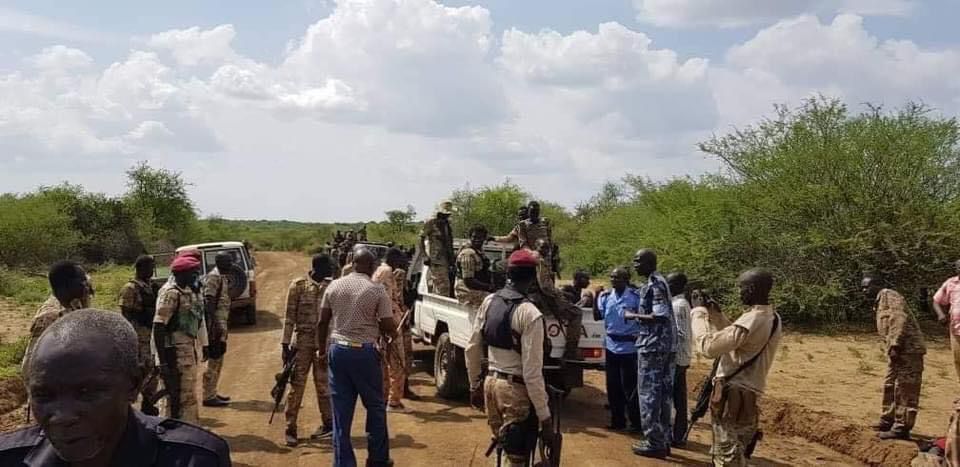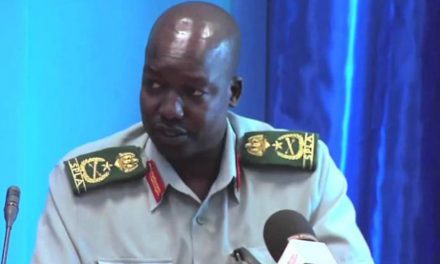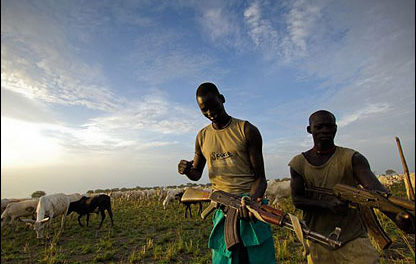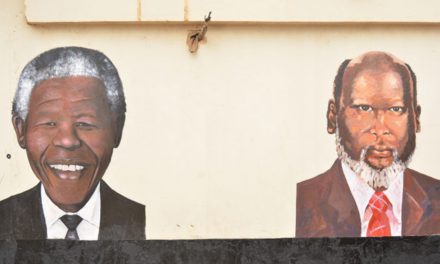
South Sudan: Diaspora Urge Dialogue Between Rival Communities

Washington DC: FRIDAY, May 20, 2022: With deadly attacks and revenge attacks on the rise this year between cattle herders and host communities in South Sudan, many in the diaspora are urging rival communities, especially those fighting in Eastern Equatoria state to find a way how to peacefully coexist.
Some South Sudanese living outside the country say the government should disarm pastoralists or cattle herders as a way to achieve that goal.
Nearly 100 people in South Sudan have been killed in fighting between pastoralists and host communities since the start of 2022. In one recent attack, 23 people were killed after armed young men attacked a cattle camp at Mugali in Magwi County, which quickly spread to nearby Nimule town where two policemen were killed.
Coexistence means learning to live and let live, a simple philosophy, said Ladu Artima, a South Sudanese native living in St. Paul, Minnesota.
“I have to respect you, allow you to live, to be alive next to me and similarly you do the same, you respect my rights and allow me to live next to you,” Artima asserted.
When people encroach on other people’s land, there will be a problem, he added.
“Communities should not occupy the land of other communities without being allowed to do so by the host community.”
“If you want to live in a place, there has to be a form of agreement and you have to do that through the will of the local person who is willing to accommodate you (and) willing to have you live next to them,” said Artima.
He also notes that living in cities is different than living in villages where people occupy ancestral lands.
Demarcating places like South Sudan’s Nimule Town into different zones for pastoralists is the best solution according to Joseph Moilinga, a South Sudanese transplant living in San Diego, California.
“We have been telling them we hosted you all these years during the [21-year] conflict [with Sudan],” he said.
“Madi people have been very friendly to the Dinka people, we intermarried and we have kids with them and they are living in our land. We had a peaceful stay with them, but the recent influx of cattle became a big problem. That’s why we said enough is enough,” Moilinga declared.
Fidel Deng, a South Sudanese native living in Nairobi, Kenya says the current conflict is caused by the cattle keepers’ constant migration from their homelands to parts of the Equatoria region.
“If it wasn’t for the cattle keepers’ constant migration from their homeland. The current conflict couldn’t have happened,” Deng told The Insider.
He also believes South Sudan is plagued by deadly fighting because too many people have weapons.
“Since 2005 up to date, the government has been selective in dealing with disarmament issues in the Upper Nile region. An example of such is the disarmament of Nuer and Dinka in 2008, leaving Murle heavily armed at the expense of others. Second, it is wrong for pastoralists to drive their animals to farmlands,” Deng added.
Deng supports a government-run, widespread disarmament campaign, especially among pastoral communities to reduce armed conflict between communities.
At a rally on Sunday in Magwi, Eastern Equatoria state Governor Louis Lobong along with the country’s security chiefs convinced herders to evacuate their cattle to Jonglei state in a bid to pave the way toward reconciliation.
They warned local politicians against fueling the conflict by spewing hateful messages.
Herders announced their conditions, including free transportation for their animals in exchange for returning with their animals to Jonglei state. Governor Lobong has not said whether Eastern Equatoria state would comply with the herders’ demands.
Podcast aired Friday May 20, 2022 on VOA South Sudan In Focus




















Recent Comments